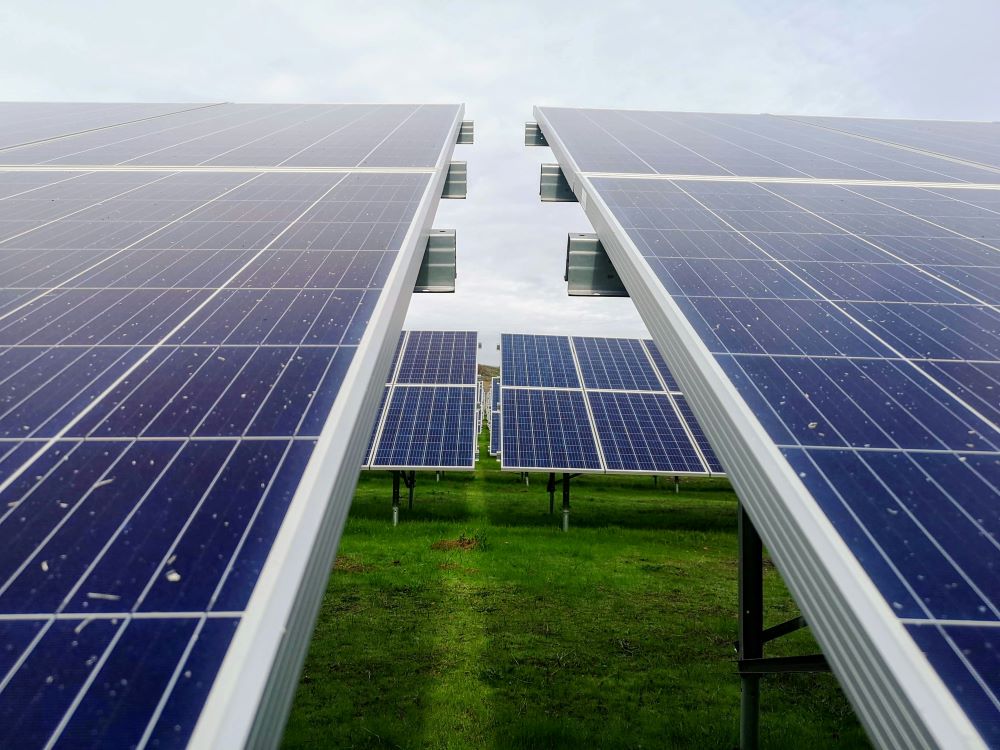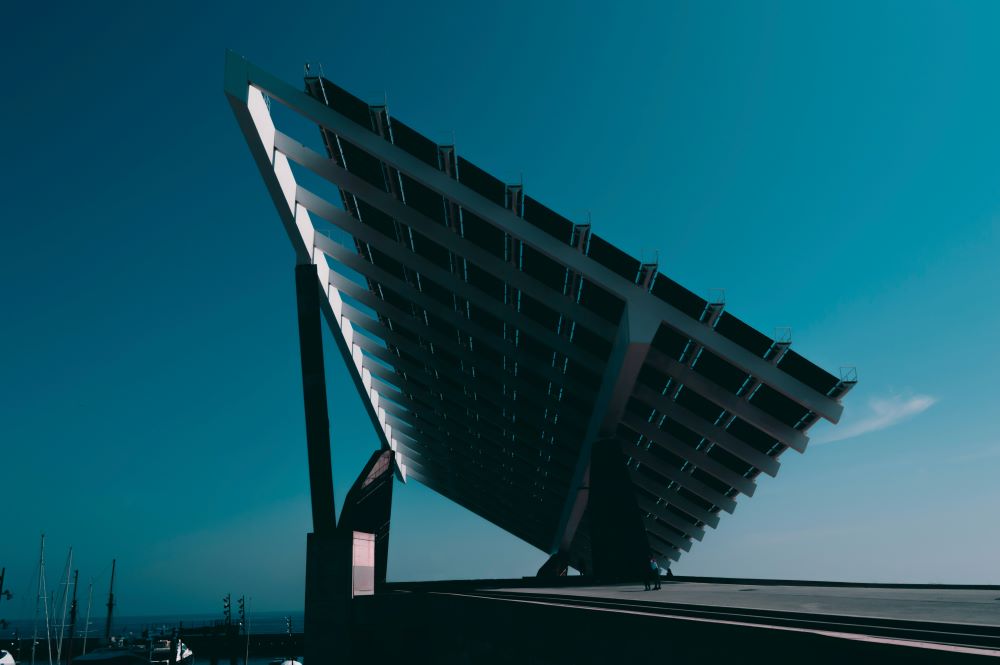Receiving sunlight without any cost? That’s the ultimate aspiration with solar panels! However, imagine the possibility of generating even greater power from those solar panels adorning your roof.
Surprisingly enough, there are methods to optimize your solar panel efficiency, thereby converting sunlight into an increased amount of clean energy for your household.
What Is Solar Panel Efficiency?
Before delving into tips for increasing their performance, we must first understand “what is solar panel efficiency?”. Think of a solar panel as a device that captures sunlight, transforming its photons into electrical energy. The efficiency rating signifies the level of effectiveness in this conversion process.
In practical terms, a solar panel with an efficiency rating of 20% effectively transforms 20% of the incident sunlight into usable electricity, while the remaining energy either dissipates as heat or reflects off.
Can Solar Efficiency Be Improved?
Fortunately, the answer is yes! Although panel technology is continuously advancing, there are measures you can implement to maximize the solar panel efficiency of your current system. Let’s explore various methods to enhance solar efficiency and witness a reduction in your electricity expenses!
Tips How To Increase Solar Panel Efficiency
At this point, you may be wondering, “How to increase solar panel efficiency?” Well, since sunshine is the fuel for your solar panels, maximizing their efficiency is like squeezing every last drop out of a gas tank.
Here are some tips to help you get the most out of your solar power system:

Choose High-efficiency Panels
When contemplating a new system, it is advisable to select panels with a higher efficiency rating, as not all panels are of equal quality. Although there may be a slightly higher initial expense, the long-term benefits of increased power generation make it a worthwhile investment.
Interestingly, efficiency ratings have experienced a consistent upward trend over the years. In today’s context, a panel with the highest efficiency may surpass the performance of an average panel from as recent as ten years ago!
Buy panels with High Concentrated Photovoltaic (CPV) Cells
These types of solar panels are comparable to those of top-tier athletes in terms of performance. They employ lenses to focus sunlight onto smaller, more proficient solar cells. Although CPV cells excel in bright and sunny environments, where they can truly showcase their capabilities (pun intended!), they demonstrate decreased solar panel efficiency in diffused light situations such as cloudy or hazy days. Consequently, if your region frequently experiences cloud cover, CPV cells may not be the optimal selection.
Avoid installing solar panels in shaded areas
It appears evident, doesn’t it? The presence of shade poses a significant challenge for solar panels. The shadows formed in the afternoon by your neighbor’s chimney are less than desirable. Before installing, it is important to thoughtfully contemplate the areas where shadows may be cast at various times during the day.
The presence of even a small amount of shade can have a notable effect on effectiveness. Also, consider the variations in seasons. The shadows cast by winter on your roof may not pose a problem in the summer, but they have the potential to significantly impede power production in the colder months.
Keep The Panels Clean
Consider particles such as dust, soil, avian excrement, and even pollen to be minuscule obstructions of sunlight, factors affecting solar panel performance. Regular solar panel cleaning, especially after heavy dust storms and strong pollen seasons, or if you are located near a busy traffic lane, can radically improve the performance. This way, it is important to follow the producer’s cleaning instructions to avoid causing any damage to the panels. As much as possible, use soft, non-abrasive materials and do not apply harsh chemicals. If some areas are challenging to reach, consider hiring a specialized cleaning firm.
Optimize Inverter Performance
The inverter plays a crucial role in your solar system by quietly converting the direct current (DC) electricity generated by your panels into usable alternating current (AC) electricity for your home. By sizing it appropriately and keeping it well-maintained, you can ensure optimal power transfer.
Consider envisioning your panels as a high-capacity water pump, while regarding the inverter as the conduit. If the conduits are too small, they might prevent the water from flowing properly and, as a result, decrease the quantity that ultimately gets to your house. Similarly, the inverters’ sizing must be done correctly because inadequate sizing can hinder the electric flow and delivery, lowering efficiency. You should consult an expert to ensure that your inverter is correctly sized and operating at maximum capacity.
Monitor And Maintain System Performance
Similar to any other piece of machinery, periodic inspections are advantageous for your solar system. The majority of systems are equipped with monitoring instruments that enable you to monitor power generation. In the event of observing a decrease in productivity, it may signify the presence of a malfunctioning panel, an issue with the inverter, or potentially loose connections.
Timely identification and upkeep can avert additional complications and guarantee optimal functioning. Consider it akin to scheduling routine oil changes and tune-ups for your car. Engaging in a small amount of preventive solar panel maintenance can yield significant long-term benefits.

Optimize Energy Consumption
Here’s an interesting approach: although it directly affects the amount of power your solar panels must produce, enhancing your home’s energy consumption can indirectly enhance solar effectiveness. Make the switch to LED lights, replace outdated appliances with energy-efficient ones, and make use of natural light whenever feasible. By minimizing your overall energy requirements, you can optimize the effectiveness of the solar energy generated. Consider it from this perspective: when you consume less energy in total, your solar panels will have a reduced workload to fulfill your demands!
To Recap!
In the ever-changing landscape of technology, the solar industry is also undergoing continuous advancement. While a full system replacement may not be financially feasible, there are potential smaller enhancements that can be explored in the future. As an illustration, newer inverter models that are more efficient could potentially be integrated with your current system, resulting in improved performance. Additionally, advancements in panel cleaning technology, such as self-cleaning coatings or robotic cleaning systems, can assist in maintaining the cleanliness of your panels effortlessly.
Transitioning to solar energy is not solely focused on financial savings, but also on diminishing your ecological footprint. By producing your own environmentally friendly power output, you are contributing to the battle against climate change and promoting the development of a more sustainable future. Therefore, recline, unwind, and revel in the sunlight with the assurance that you are contributing to the well-being of the planet!
Voila! By adhering to these suggestions on how to increase solar panel efficiency, you can transform your sunlight into an extraordinary solar resource. By selecting appropriate panels, maintaining their cleanliness, and utilizing power judiciously, one can undertake measures to optimize the efficiency of solar panels and harness the full power of sunlight. It is important to bear in mind that with careful planning and attentive maintenance, a solar system can operate at its peak performance, resulting in cost savings and environmental benefits. Presently, venture outside and absorb the sunlight (with utmost efficiency)!
Interested in learning more about how to boost your solar panel efficiency? Contact us – our team of solar experts is happy to answer your questions!

